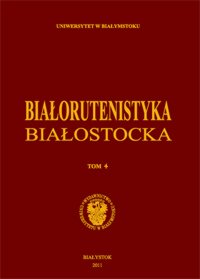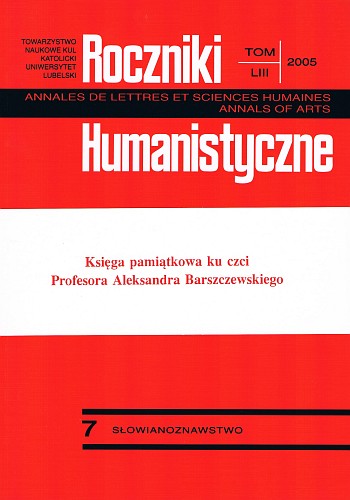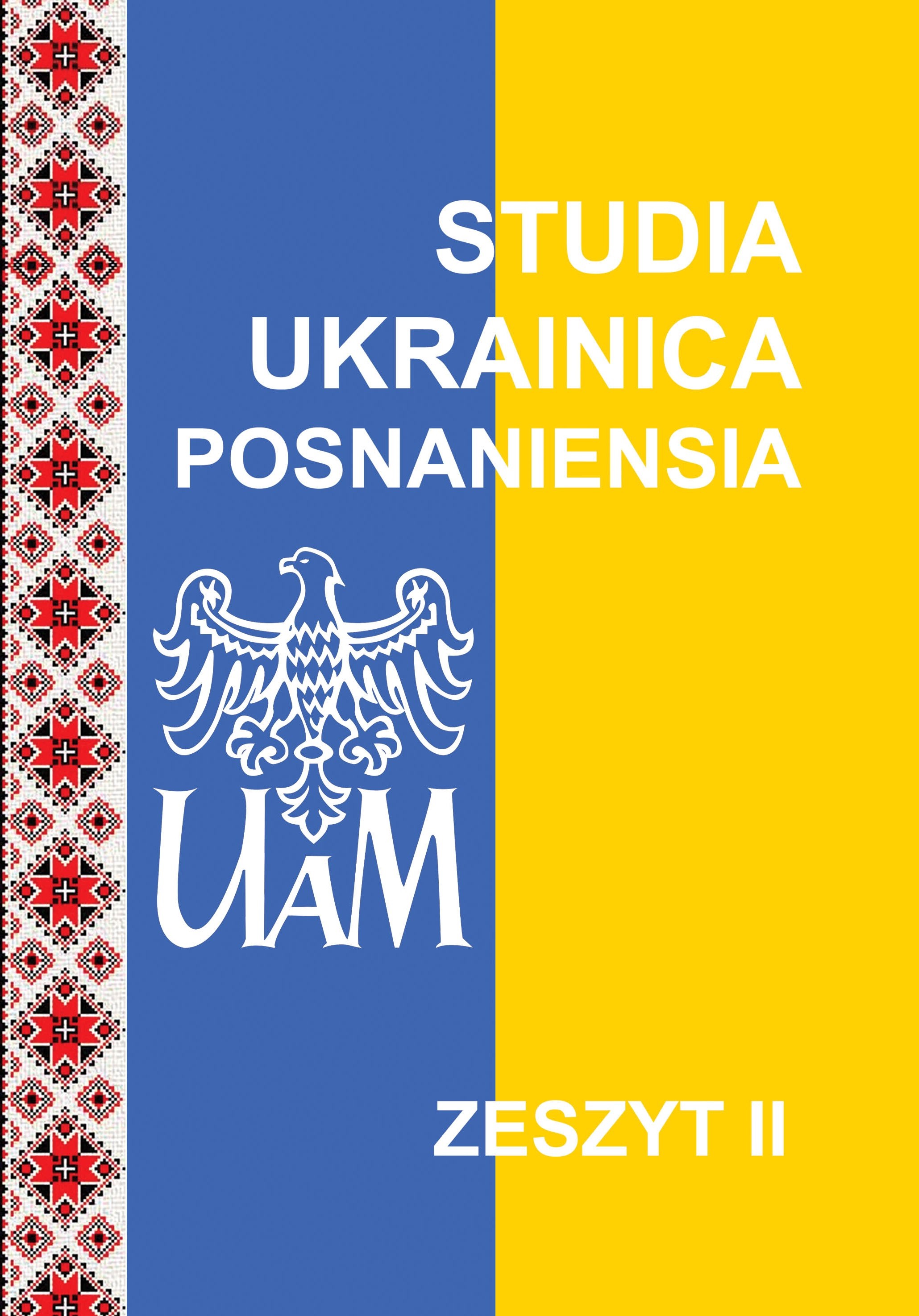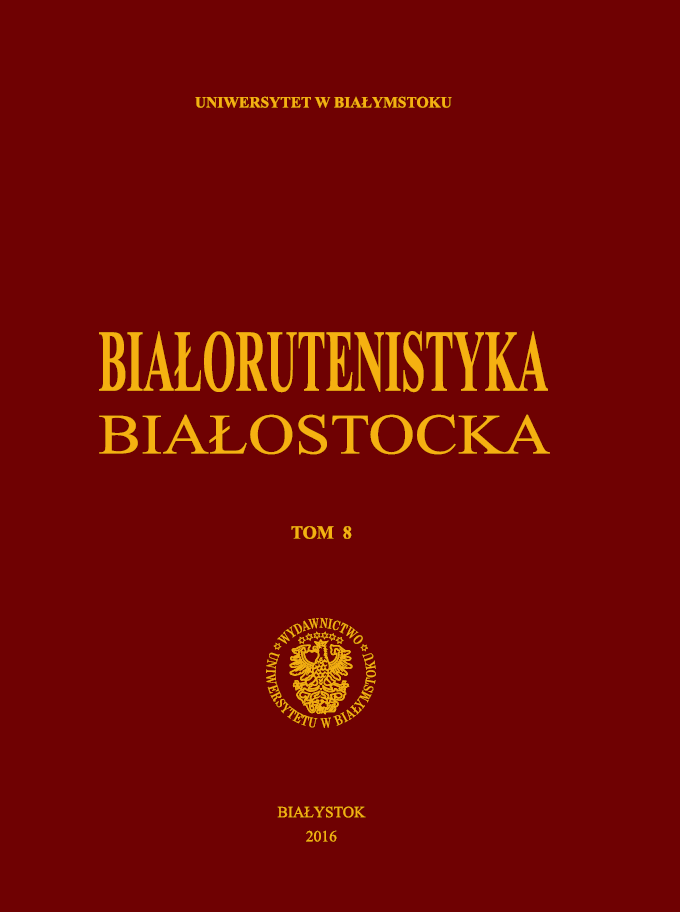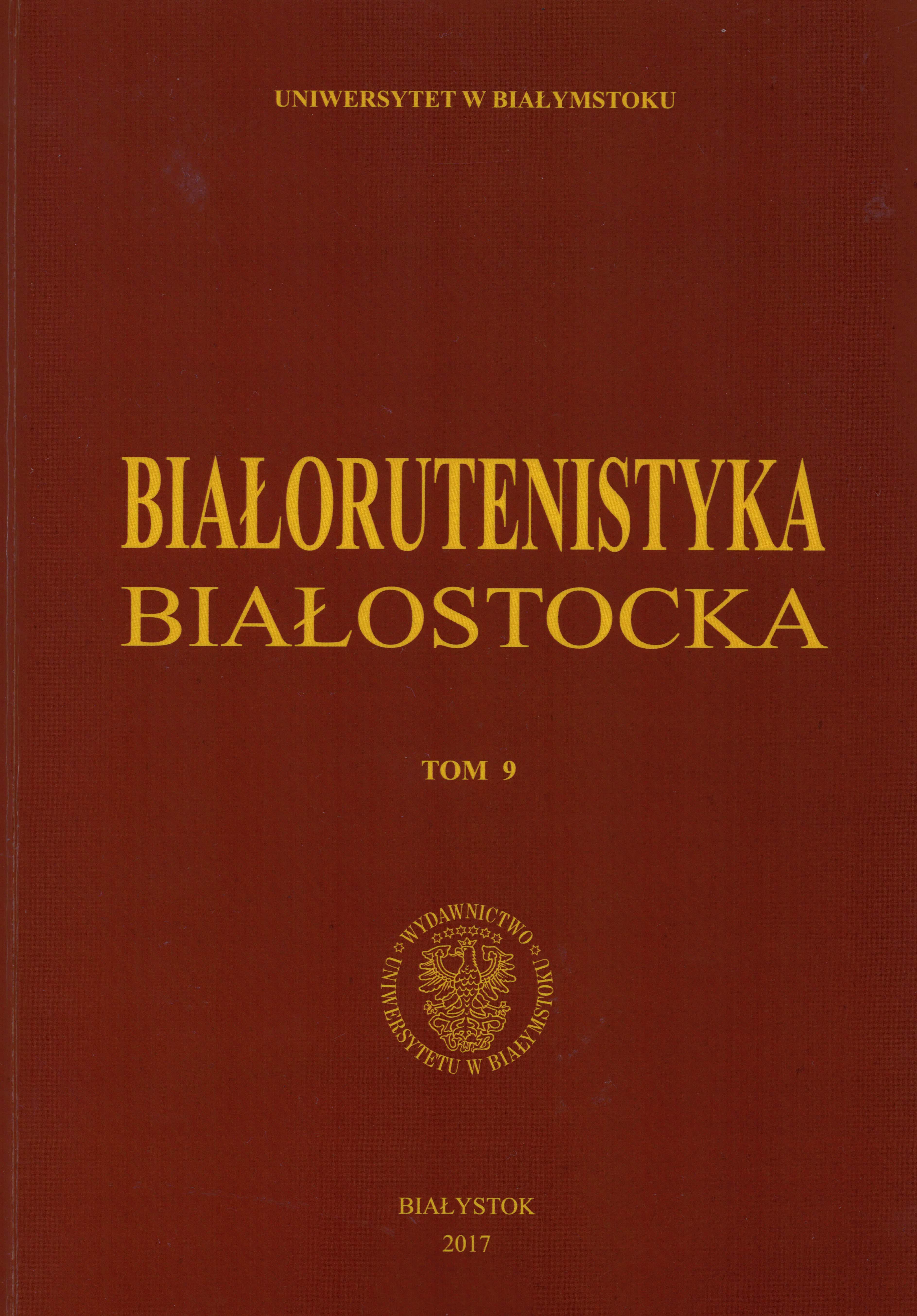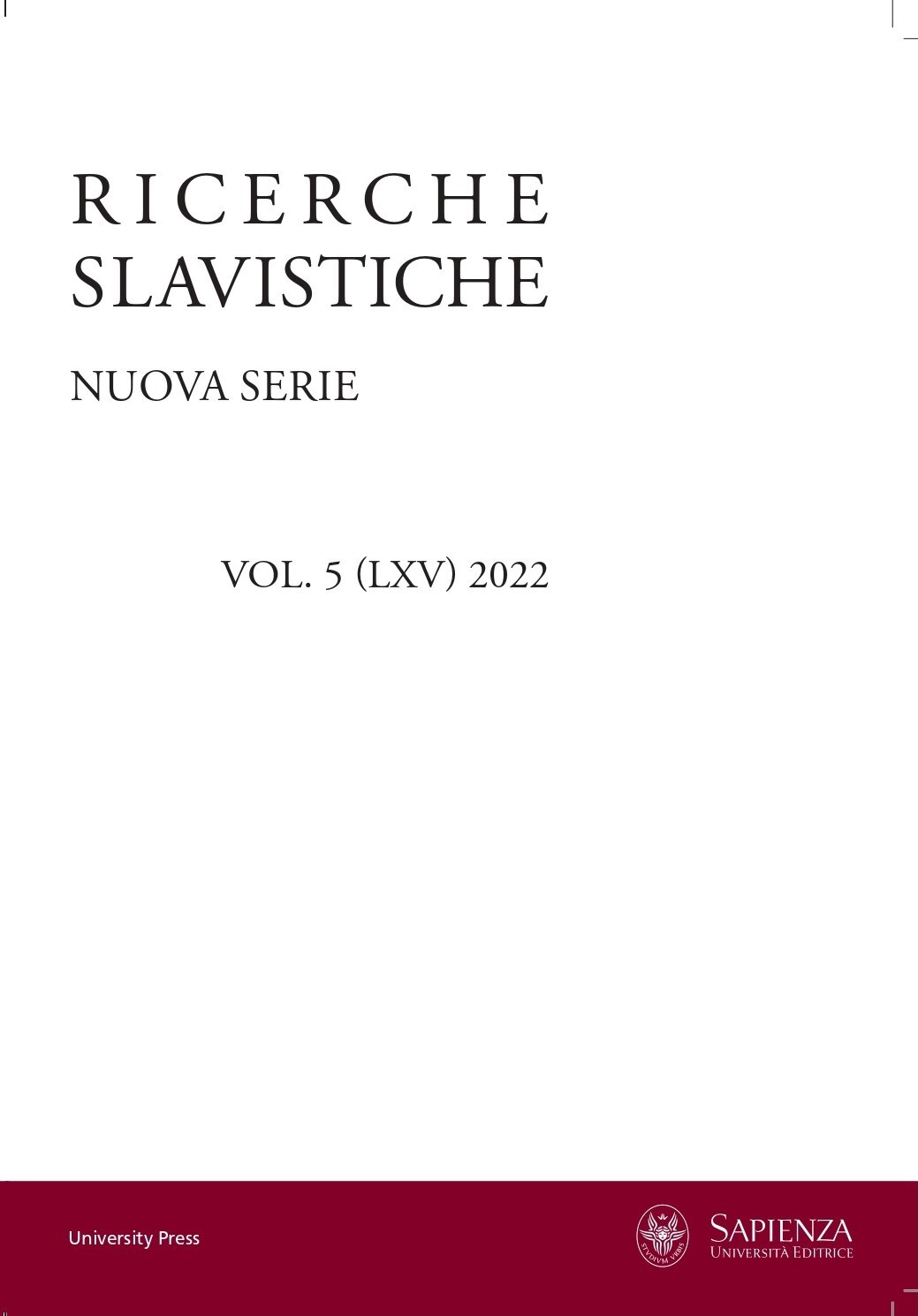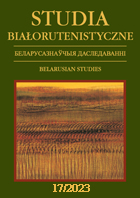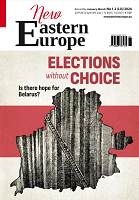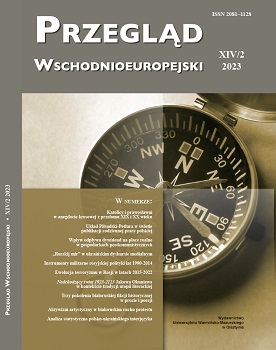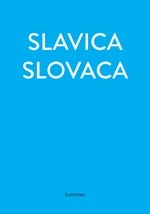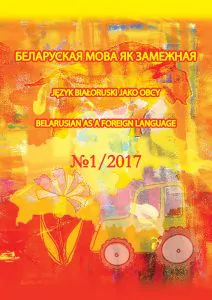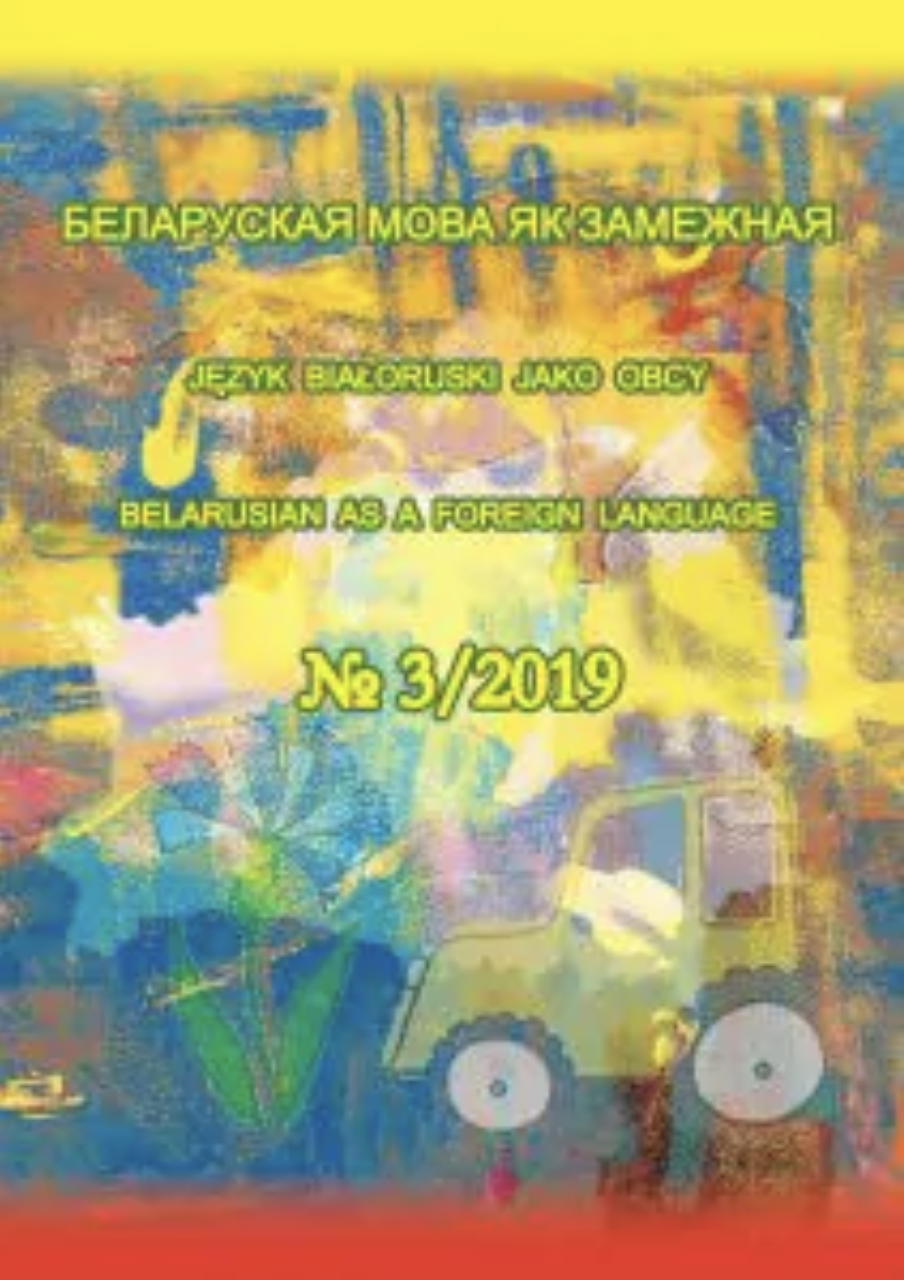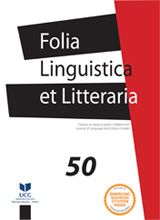Author(s): Mikoła Chaustowicz / Language(s): Belarusian
Issue: 17/2023
A distinctive feature of the Belarusian literary process of the 19th century is the parallel presence of authorial and anonymous works. In the corpus of artistic texts of this period there are more than a hundred anonymous works. We know the names and surnames of many writers who allegedly wrote in Belarusian, but to our time no Belarusian works have survived. The subject of this study is the life and creative vicissitudes of Yulian Liaskouski (1826–1889), as well as hypotheses regarding the possible involvement of the poet in the creation of the poem Zahraj, zahraj, chłopcze mały... (Play, Play, Boy Small...) and propaganda texts for the people from the early 1860s. The article, based on the analysis of printed and handwritten materials, proves that Yulian Liaskouski, who most often performed under the pseudonyms Y. Korabicz, Marcin Mizera, and Mroczek, used not only Polish, but also Belarusian in his works. It is very likely that the poems Ziemielka maja… (My land…) and Pad dudu (Sing the Bagpipe Pad), published by him as folk ones in the article Słówko o pieśni (A Word about Song) (1882), belong to him. However, the most significant evidence in favour of the fact that Y. Liaskouski has written some works in Belarusian is the statement of Adam Honori Kirkor, in which a well-known Vilnius editor and publisher includes the poet and publicist Yulian Mroczek among the most famous Belarusian writers of the middle of the 19th century – Vincent Dunin-Marcinkewicz, Arciom Viaryha-Dareuski, Uladislau Syrakomlia, Vikentij K.
More...
